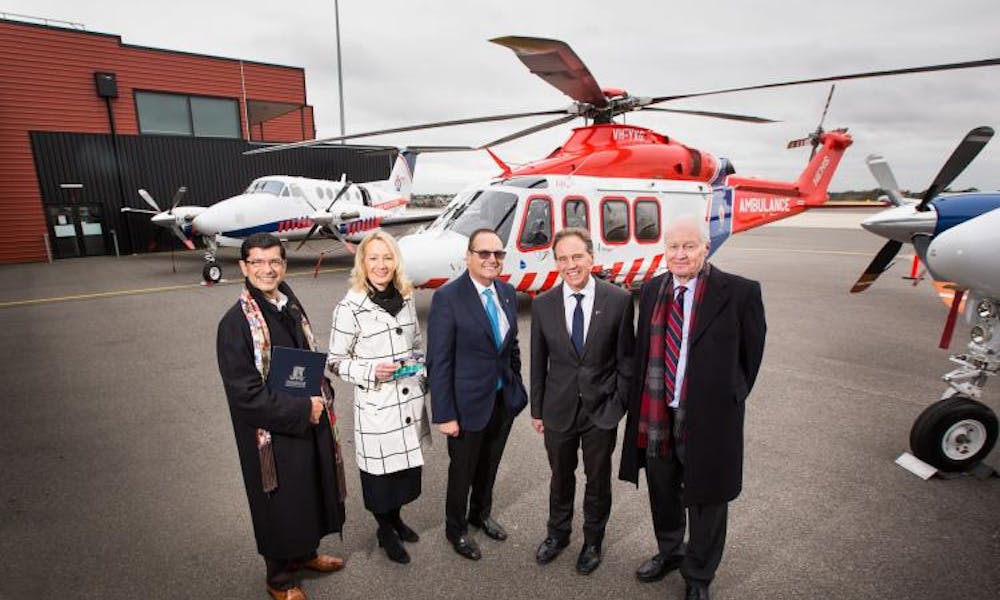Work is underway to create world-first light, portable brain scanners so more Australians have rapid access to real-time stroke treatment.
The radical approach will tackle the serious inequity of access to stroke care for rural and remote Australians. It is expected to dramatically reduce the risk of death and disability after a stroke.

The Australian Stroke Alliance has received $40 million through the Frontier Health and Medical Research initiative. The five-year program will lay the foundations for a national and equitable approach to the treatment of stroke. Stroke poses a unique opportunity for transformative treatment – when every single minute counts to save brain cells.
This research program, led by Professors Geoffrey Donnan and Stephen Davis at The University of Melbourne and the Royal Melbourne Hospital (RMH), will target the crucial first hour after stroke onset, known as the ‘golden hour’ to give patients the best chance of survival.
“Fundamentally, we are taking the emergency department to the patient, saving lives and preventing disability. And with new data showing a significant increase in younger Australians experiencing stroke, this will have enormous implications for the nation,” said neurologist Prof Geoffrey Donnan.
Prof Davis added: “If you have a stroke in a remote part of Australia, you are twice as likely as city stroke survivors to be left with a serious, lifelong disability. And only three per cent of rural and remote patients receive care in a specialist stroke unit, compared with 77 per cent of people in metro areas”.
“We are bringing together the Royal Flying Doctor Service, aeromedical and material engineers, stroke physicians, Indigenous medical professionals, specialist nurses and paramedics, as part of a revved-up team of more than 30 organisations,” he said.
The research program encapsulates a wide range of world-first initiatives including two light, portable brain scanners, locally designed and built to suit different forms of emergency transport – by road, helicopter or fixed-wing ambulance.
As well, the world’s first stroke patient app will use a novel digital telehealth platform to transfer and receive real-time patient scan, video and audio communication with a city-based stroke physician, 24-hours a day, transforming the support of health carers out in the field.
The Alliance has already delivered Australia’s first mobile stroke road ambulance, which Ambulance Victoria operates within a 20km radius of the Royal Melbourne Hospital.
It has cut treatment time by 41 minutes and treated 10 times as many patients in the first ‘golden hour’ after stroke, enabling a rapid diagnosis and life-changing treatment to be delivered faster than a traditional transfer to hospital.

We provide a media service from 6am to 9pm each day. Journalists are welcome to contact our media adviser on-call via the RMH Switchboard on (03) 9342 7000.
During business hours, journalists can email mh-communications@mh.org.au. We do not respond to emails outside business hours.

